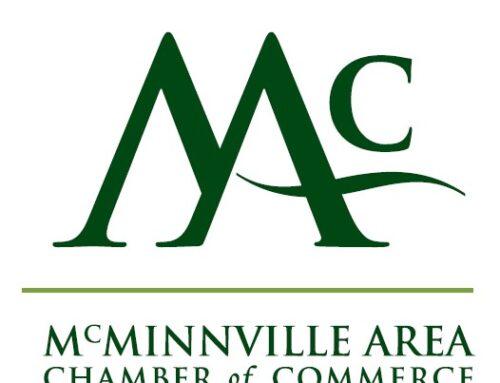Action Alert!! Marijuana Accommodation (SB379) – The Senate Judiciary Committee is pushing forward to pass its marijuana accommodation bill. We had thought it was defeated, however Senate Judiciary Committee Chair Floyd Prozanski (D-Eugene) is going to make a last-minute push to pass it. SB379 would nullify all employer’s workplace drug-free policies and would require employers to accommodate off-duty marijuana use. Please respond now by writing to your senator now by clicking here: https://www.votervoice.net/OSCC/campaigns/62827/respond. A vote will likely be by the end of this week.
Legislative Update – April 1, 2019 – Last week was a make or break week for bills. Any bills that had not been scheduled for committee votes by this past Friday were dead. By Tuesday, April 9th, all bills that remain must be voted out of their respective committees to move forward. About half of the bills originally presented to the legislature are now dead, with the other half remaining, many of which are threats to business.
Bills that did not make it through: anti-insurance bills (SB728 and HB2421), anti-forestry (HB2656), a bill that limits the enforceability of employment contracts (HB2489), pro-business legislation fixing the manufacturing overtime rule (SB110) and all the PERS reforms bills (SB532 and SB533).
Governor Brown proposed new health care tax (HB2269). This proposal would give the Oregon Health Authority the ability to determine the cost every large employer (50 or more employees) should be spending on health care for their employees and authorizes the agency to levy a tax on every employer that does not meet the agencies minimum health care spending requirements. It is designed to raise an about $500M per biennium in new taxes although it is not subject to the supermajority vote requirement to raise taxes.
Here are some of the bills that we are following for you.
- HB 3031 – Paid Family Leave
This bill applies to employers with over one employee. It mandates 26 weeks (down from 32 weeks of paid leave) of paid and protected family and medical leave each year, along with creating a state-run family insurance program administered by DCBS (Oregon Department of Consumer and Business Services). It establishes a new payroll tax of up to 2% to pay for the family-leave insurance (1% paid by employer in payroll taxes and 1% paid by employee through income taxes). The bill must raise at least $1B every biennium to fund a solvent problem.
- SB 947 – Paid Family Leave
This expands OFLA (Oregon Family Leave Act) to any business with at least one employee. It mandates 24 weeks of paid and protected family leave, along with an additional 24 weeks of protected family and medical leave for some types of leave each year. This means that it could be a total of 48 weeks. This bill would also require employers to pay 100% of employee wages while the employee is on paid leave.
- HB 2020 – Cap & Trade
The re-write of the bill was unveiled regarding this bill. What it will do is increase gas at the pump by 0.16 cents per gallon and an immediate increase of 30% in natural gas for residential, commercial and industrial customers. Large manufacturers will see similar and immediate cost increases for electricity. All added up, it will be about $1.4B increase in costs for Oregonians each biennium, with the largest cost being borne by manufacturing and transportation.
There are a couple of main takeaways from the re-write:
-Establishes a Carbon Policy Office. This office would coordinate state actions towards achieving greenhouse gas emission reduction goals and other statues, rules and policies.
-Oregon Climate Action Program. The goal is to achieve emission levels by a certain time, promote greenhouse gas emissions sequestration and mitigation, adapting to climate change, and provide assistance to households, businesses and workers impacted by climate change.
-Requires the Carbon Policy Office to submit a report no later than September 2030 assessing what impact this has had on the state, including emission intensity, reduction opportunities, and if the benchmarks set are still viable.
- Business Tax increases
Democratic leadership is leaning towards a Commercial Activity tax, which is a pure gross receipts tax. This will be the basis for implementing a new business tax to add more than $2 billion in revenue into the State’s K-12 system. Opponents believe the money will be used only to cover PERS and not actually go to the classroom.
- HB 2014 – Lawsuit Damages
This bill would repeal Oregon’s legal limit of $500,000 on non-economic damages in personal injury and negligence lawsuit claims. It could drive up the health care costs and general liability costs for employers. This bill is expected to pass easily through the House and likely be fought in the Senate.
- HB 3262, HB 2269 – Employer Health Care Taxes Part 2
Legislative leaders plan to move forward with a tax on employers with more than 50 employees who are on Medicaid (or who have family members on Medicaid). The amendment does not appear to be limited to a particular sector, but it is assumed to raise the projected $120 million in new taxes to close out gap in the health care budget. This legislation appears to allow an agency (like the Oregon Health Authority) wide discretion to tax employers to meet revenue objectives with little oversight from the legislature.
OREGON is looking at biennial costs with all the tax increases of…. $5 billion!
- OregonSaves (HB2960)
Oregon Saves is a state program to encourage saving for retirement. Businesses are required to either provide their own retirement program or enroll their employees in the State program. It is not affiliated with PERS but establishes an individual Roth IRA for the employee, that is portable to another job should they leave your employment. Employees can opt out of the retirement program if they choose to do so. You can find more information here: https://employer.oregonsaves.com/.




